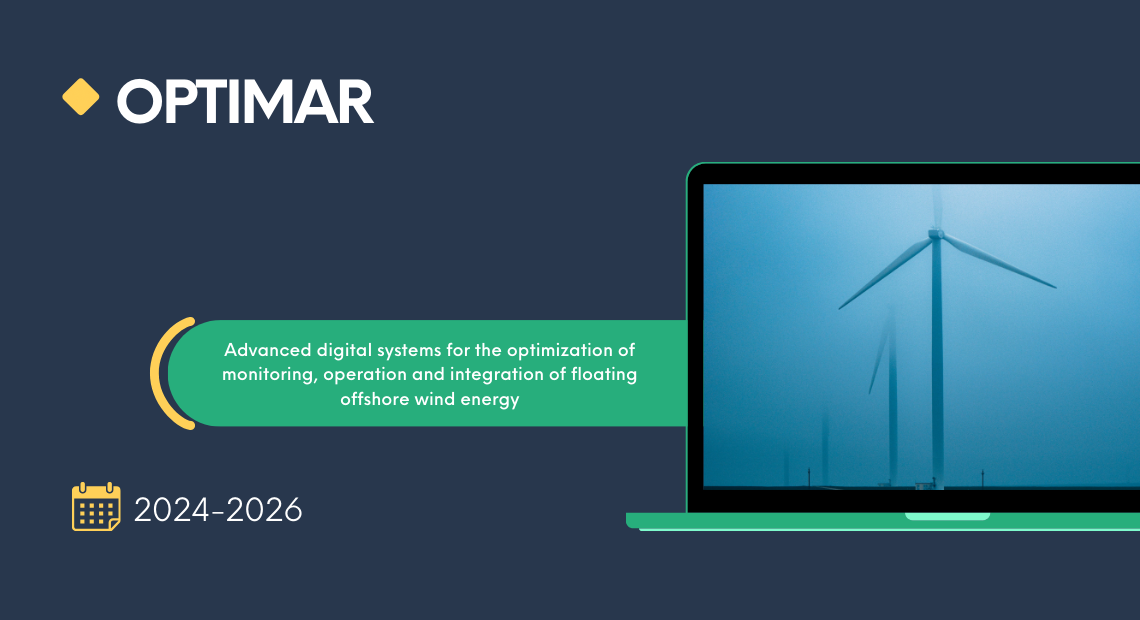Recent studies on the upcoming technological challenges of floating offshore wind indicate that by 2050, 82% of the electricity connected to the global grid will be generated from renewable sources. Of this percentage, 33% will correspond to wind generation. To meet these targets, the EU has committed to promoting the development of offshore wind energy and exploring its potential in the seas of Europe and along its coasts, while simultaneously respecting the ecological limits of natural resources and the interests of other marine users. However, one of the main factors limiting the development of this technology is the high cost of the initial investment required.
In this direction, the OPTIMAR project works in for this development, and will be based on the application of advanced digital systems for the optimisation of the monitoring, operation, and integration of floating offshore wind energy. The main objective of OPTIMAR is to optimise the O&M, availability, and Annual Energy Production of offshore wind farms through non-intrusive monitoring, design of a predictive failure algorithm and enhanced security of data spaces with artificial intelligence.
OPTIMAR is financed by the TRANSMISIONES 2023 programme from CDTI and AEI (from the Spanish Government) and responds to Thematic Priority 3: Contribute to the energy transition in Spain and the development of 21st century energies, through the design of innovative solutions for offshore wind energy with the aim of ensuring optimal energy production in offshore wind farms and their integration into the grid.
The project has a total budget of about 6M€ and will run for 3 years starting in January 2024. The consortium is formed by 10 partners, including 7 companies: ISATI Engineering Solutions (coordinator), HI Iberia Ingeniería y Proyectos, Grupo Técnico RIVI, EnerOcean S.L., IDNEO, Atten2 Advanced Monitoring Technologies and DATADRON SL; and 3 research centres: Tekniker, IREC and Universidad de Salamanca.
IREC researchers have the goal of developing and designing new algorithms, models and controls that will allow improving the operation, maintenance, and integration of floating offshore wind farms. More specifically, they aim at improving the monitoring of the components of floating wind turbines and their float, developing advanced optimal park controls, and analysing the impact and feasibility of its integration into the electrical grid, both at the level of network codes and energy balance. This action is led by José Luis Domínguez, Jose Ignacio Rapha and Hector del Pozo from the Power Systems group at IREC.
Link to the website of the project: https://optimar.org.es/
Acknowledgements (in Spanish): El proyecto OPTIMAR (PLEC2023-010352) está financiado por MCIN/AEI/10.13039/501100011033 y por el CDTI mediante el programa TRANSMISIONES 2023.




